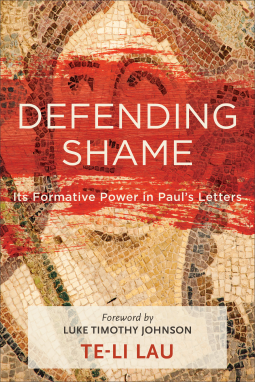
Defending Shame
Its Formative Power in Paul's Letters
by Te-Li Lau
This title was previously available on NetGalley and is now archived.
Buy on Amazon
Buy on BN.com
Buy on Bookshop.org
*This page contains affiliate links, so we may earn a small commission when you make a purchase through links on our site at no additional cost to you.
Send NetGalley books directly to your Kindle or Kindle app
1
To read on a Kindle or Kindle app, please add kindle@netgalley.com as an approved email address to receive files in your Amazon account. Click here for step-by-step instructions.
2
Also find your Kindle email address within your Amazon account, and enter it here.
Pub Date Apr 21 2020 | Archive Date Apr 30 2020
Baker Academic & Brazos Press | Baker Academic
Talking about this book? Use #DefendingShame #NetGalley. More hashtag tips!
Description
2020 Center for Biblical Studies Book Award (New Testament)
Our culture often views shame in a negative light. However, Paul's use of shame, when properly understood and applied, has much to teach the contemporary church. Filling a lacuna in Pauline scholarship, this book shows how Paul uses shame to admonish and to transform the minds of his readers into the mind of Christ. The author examines Paul's use of shame for moral formation within his Jewish and Greco-Roman context, compares and contrasts Paul's use of shame with other cultural voices, and offers a corrective understanding for today's church. Foreword by Luke Timothy Johnson.
Our culture often views shame in a negative light. However, Paul's use of shame, when properly understood and applied, has much to teach the contemporary church. Filling a lacuna in Pauline scholarship, this book shows how Paul uses shame to admonish and to transform the minds of his readers into the mind of Christ. The author examines Paul's use of shame for moral formation within his Jewish and Greco-Roman context, compares and contrasts Paul's use of shame with other cultural voices, and offers a corrective understanding for today's church. Foreword by Luke Timothy Johnson.
Available Editions
| EDITION | Other Format |
| ISBN | 9781540960146 |
| PRICE | $30.00 (USD) |
| PAGES | 288 |
Featured Reviews
Te-Li Lau's Defending Shame is a helpful read for anyone who wants to better understand 'honour and shame' framework that is indigenous to the gospel of Jesus Christ. A helpful read.




